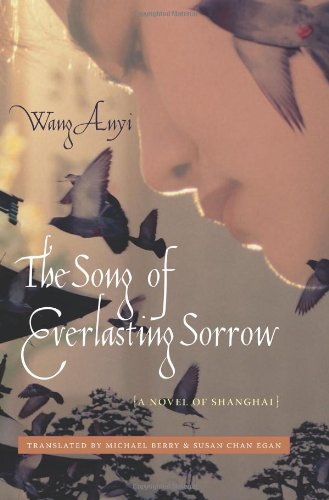The Song of Everlasting Sorrow: A Novel of Shanghai
First published in 1995, Wang Anyi’s literary masterpiece has now been translated into English, which is sure to garner her many more appreciative readers. The heroine is Wang Qiyao, who grows up in Shanghai in the 1940s, entranced by fashion and Hollywood movies. A visit to a film set, then a session with a photographer, results in a picture of her being printed in Shanghai Life as a “Proper Young Lady of Shanghai.” Her brief moment of fame continues as her friends urge her to enter the “Miss Shanghai” pageant—this is an opportunity to show the world that both she and Shanghai are modern and fashionable. Soon Wang Qiyao becomes the secret mistress of a government official, and the rest of her life is spent trying to recapture, or re-live, those fleeting happy times of her youth. Friends and lovers come and go, and we see them and the city move through the turbulent 1960s, the more liberated 1970s, and finally, the youth-centered 1980s.
History is portrayed through the characters’ descriptions of and responses to changing fashions and social mores rather than any narrative of political movements and social upheaval. Shanghai itself is very much a character in this novel alongside Wang Qiyao, and there is extensive description of the longtang—neighborhoods—that make up the city, and their evolution and eventual deterioration as the city becomes covered with huge blocks of high-rise apartments. As the city becomes ever more densely populated, the connections between people become more tenuous, and at last there is nothing to connect Wang Qiyao with her past or the city. The story is spellbinding, colorful, and sad; the writing is dense and thoughtful. Though by no means an action-packed easy read, this is a page-turner right up to the end.










